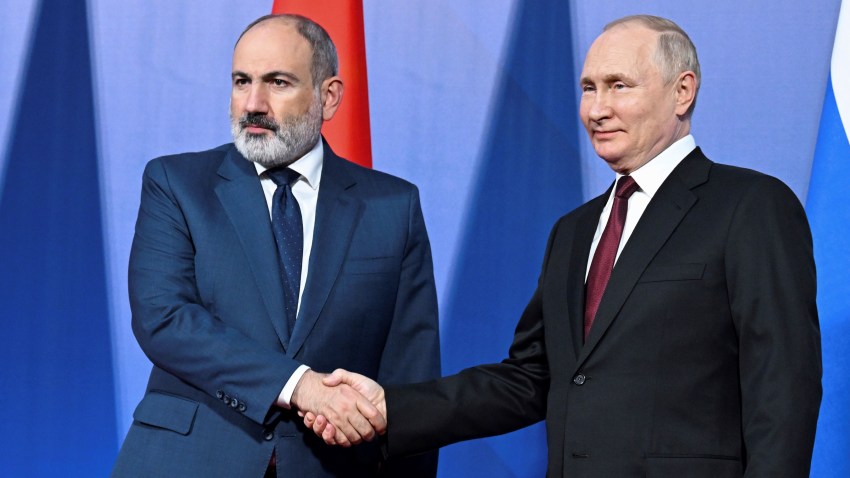Last week, in a move that raised eyebrows among close observers of the South Caucasus region, Armenia held joint military exercises with U.S. troops for the first time. According to the Armenian Defense Ministry, the exercises were aimed at improving interoperability between the two sides and help Armenia’s armed forces meet NATO’s standards in conducting peacekeeping operations. Remarkable in and of themselves, the joint military exercises were even more noteworthy because they followed a series of other recent developments that have underscored the degree to which Armenia’s relations with Russia, Yerevan’s historical security guarantor and treaty ally, have deteriorated in recent years.
On Sept. 5, Armenian Prime Minister Nikol Pashinyan’s wife visited Ukraine to deliver Yerevan’s first shipment of humanitarian aid to Ukraine since Russia invaded the country in February 2022. Also in early September, Pashinyan publicly criticized Moscow, stating that its position in the South Caucasus had weakened and calling Armenia’s security dependence on Russia “a strategic mistake.”
Adding a personal touch, on Sept. 1, Pashinyan submitted the Rome Statute to Parliament to ratify Armenia’s adhesion to the International Criminal Court. The move might have been aimed at using the ICC as an arena in which to challenge Azerbaijan’s position when it comes to Nagorno-Karabakh, the ethnic Armenian separatist region of Azerbaijan over which Yerevan and Baku have fought numerous times, most recently in 2020. But the decision also served as a signal to Moscow, as Armenia’s membership in the ICC would complicate the ability of Russian President Vladimir Putin, for whom an ICC arrest warrant has been issued, to visit Yerevan.

